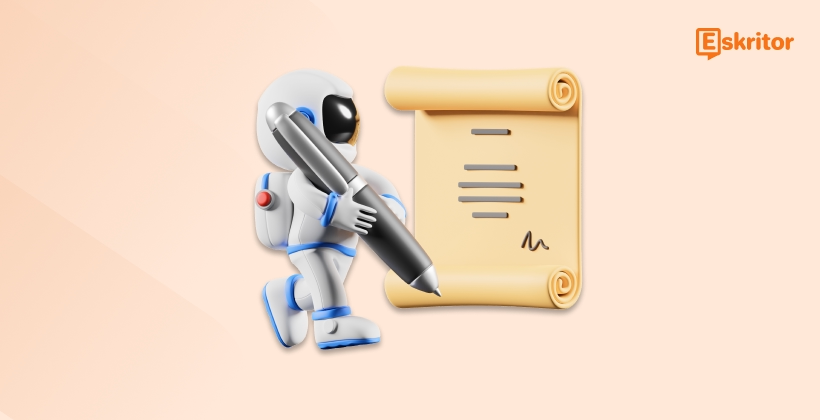Why AI Editing is Revolutionizing Proofreading
Why AI Editing is Revolutionizing Proofreading
Blog Article
Why AI Writers Are Essential for Modern Businesses
As artificial intelligence (AI) evolves, it continues to revolutionize exactly how we approach modern modifying practices. From syntax modification tools to sophisticated material era programs, AI Editing is reshaping just how authors, editors, and builders refine their work. This blog explores the role AI plays in contemporary modifying and the affect it has across industries.

AI-Powered Methods Primary the Charge
AI-powered methods have grown to be an essential section of modifying workflows. Application fueled by organic language processing (NLP) and equipment understanding may do projects like grammar checks, stylistic suggestions, and sentence restructuring with amazing pace and accuracy.
For instance, AI-based syntax pieces can recognize problems that the eye might overlook, such as for example subject-verb agreement issues or lost modifiers. Likewise, style changes developed by AI make sure that tone and flow arrange with the supposed market, which is invaluable for professional editors.
These instruments are not just limited to old-fashioned grammar corrections. They are capable of increasing readability, transforming inactive voice to active voice, and actually paraphrasing whole paragraphs without changing the meaning.
Performance Meets Time Savings
Studies reveal that the usage of AI methods may reduce modifying time by up to 30%. Rather than poring around every sentence physically, authors can emphasis their initiatives on creative and proper aspects of content. This shift enables experts to control higher amounts of text in smaller intervals, which is specially useful for industries like writing and digital marketing.
Moreover, predictive AI features may spotlight continuing problems, supporting authors enhance their skills over time. For businesses, this translates to fewer assets used on changes and more refined outputs from the start.
Improving Accessibility and Globalization
AI's role in modern modifying extends beyond efficiency. Sophisticated interpretation and localization instruments allow creators to conform material easily for global readers, breaking down language barriers with precision. This engineering ensures that the same message can resonate with cultures worldwide while keeping their authenticity.
AI also increases inclusivity standards by improving convenience in content. For instance, methods may recognize possibly non-inclusive language and suggest alternatives. This capacity enables authors to improve publishing so that it resonates with diverse audiences.

Striking a Harmony Between AI and Human Creativity
While AI excels in speed and reliability, it generally does not change human editors. Products often absence the capacity to interpret nuance, sensation, or social context fully. The ideal system mixes AI's effectiveness with human creativity and information, leading to truly excellent work.
By leveraging these technologies in modern editing methods, makers and editors equally may make supreme quality content that aligns with the fast-paced needs of today's digital world. AI could be the future of modifying, but the individual touch can be needed for storytelling and connection. Report this page